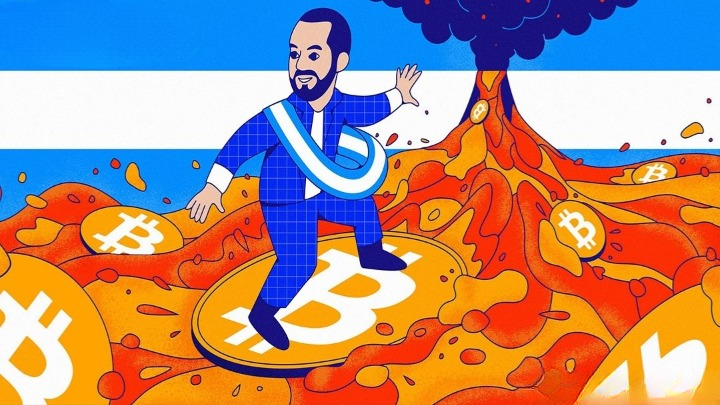In June 2021, Nayib Bukele, El Salvador’s president, surprised the world with the announcement that the country would adopt bitcoin as legal tender, becoming the first nation to do so.
In September 2021, El Salvador made history by becoming the first country to adopt Bitcoin as legal tender. This bold move was aimed at boosting financial inclusion, creating jobs, and facilitating remittances, all while utilizing the country’s new Chivo Wallet app. But what does this experiment mean for the future of Bitcoin and its role in the global financial system? Here’s a closer look at El Salvador’s Bitcoin journey, its outcomes, and what other nations might learn from this experience.
Why Did El Salvador Adopt Bitcoin?
-
Financial Inclusion: With a significant portion of its population unbanked, El Salvador aimed to leverage Bitcoin to provide financial services to more people. The government hoped that by integrating Bitcoin, more Salvadorans would gain access to banking and financial tools.
-
Job Creation: By embracing Bitcoin, the country sought to spur economic growth and create new job opportunities, particularly in the tech and financial sectors.
-
Remittances: Remittances are crucial for many Salvadoran families. The use of Bitcoin was expected to reduce the cost of sending money across borders and make the process more efficient.
-
Innovative Financial Solutions: The Chivo Wallet app was designed to offer functionalities similar to central bank digital currencies (CBDCs), allowing transactions in both Bitcoin and U.S. dollars, and aiming to modernize the financial infrastructure.
The Advantages of Bitcoin Adoption
-
Increased Financial Access: Bitcoin and Chivo Wallet potentially opened up financial services to those previously excluded from traditional banking systems.
-
Reduced Remittance Costs: The use of Bitcoin could lower the fees associated with international money transfers, benefiting families dependent on remittances.
-
Global Attention: El Salvador’s pioneering approach has drawn global attention and positioned the country as a case study in cryptocurrency adoption.
-
Economic Opportunities: The integration of Bitcoin could foster innovation and attract investment in El Salvador’s tech sector.
The Drawbacks and Challenges
-
Low Adoption Rates: Despite significant promotional efforts, actual usage of Bitcoin and Chivo Wallet has been limited. Many Salvadorans downloaded the app but did not use it regularly.
-
Trust Issues: Concerns about privacy and the lack of anonymity compared to cash transactions have hindered adoption. Many people remain wary of Bitcoin’s volatility and the app’s security.
-
Government Skepticism: The International Monetary Fund (IMF) and other global entities have expressed skepticism about the effectiveness and potential risks of Bitcoin adoption in El Salvador.
-
Volatility and Risk: Bitcoin’s price volatility presents risks that are challenging for both users and the government to manage effectively.
What Can We Learn from El Salvador’s Experience?
El Salvador’s experiment with Bitcoin offers valuable insights into the potential and limitations of cryptocurrency as a tool for financial inclusion and economic development. Key takeaways include:
-
Trust and Privacy: For digital currencies to succeed, trust in the technology and the governing institutions is crucial. Without it, adoption will remain limited.
-
Government Support: Effective adoption requires robust support systems, including clear communication, education, and infrastructure to ensure users can safely and effectively engage with the technology.
-
Adaptability: As financial technologies evolve, so too must the policies and strategies surrounding them. El Salvador’s experience highlights the need for adaptable approaches to digital currency adoption.
While El Salvador’s Bitcoin experiment is a bold step towards modernizing its financial system, the mixed results underline the complexities of integrating such transformative technology into everyday life. As more countries consider digital currencies, El Salvador’s experience provides both cautionary tales and hopeful examples for shaping the future of global finance.
For further insights, check out the study by David Argente, Diana Van Patten, and Fernando Alvarez, “Are cryptocurrencies currencies? Bitcoin as legal tender in El Salvador,” published in Science magazine.
…So how is El Salvador doing?
The country is on the cusp of a historic financial shift as President Nayib Bukele announced plans to submit the nation’s first deficit-free budget for 2025. This comes after years of fiscal deficits, including a $338 million gap in 2024 and a $1.2 billion shortfall when Bukele assumed office in 2019.
Bukele emphasized that the 2025 budget will mark a major milestone, as it will be fully financed without taking on new debt for current spending. Speaking during El Salvador’s 203rd Independence Day celebrations, he stated, “El Salvador will no longer spend more than it produces annually.” The president also highlighted that the country will cover interest payments on inherited debt from its own production, eliminating the need for borrowing.
This budget reflects Bukele’s vision of a “financially independent” and “economically prosperous” nation. Backed by a strong majority in the Legislative Assembly, Bukele’s government is set to move forward with its goal of achieving fiscal stability.
In August, the International Monetary Fund (IMF) acknowledged progress in discussions with Salvadoran authorities regarding a potential Fund-supported program. These discussions are centered on strengthening public finances, boosting financial reserves, and managing risks associated with Bitcoin, which became legal tender in El Salvador in 2021.
While El Salvador’s Bitcoin experiment has yet to achieve widespread adoption, Bukele remains optimistic. The country currently holds 5,874 bitcoins, with a portfolio showing an unrealized gain of 32.6%, or $43 million, based on estimates from NayibTracker. Despite the slower-than-expected adoption, Bukele has expressed confidence that improvements can still be made.
As El Salvador edges toward a deficit-free 2025 budget, the move signals a significant step toward long-term fiscal independence.

